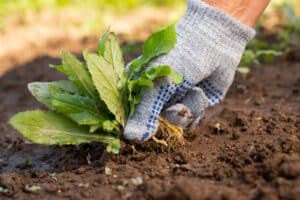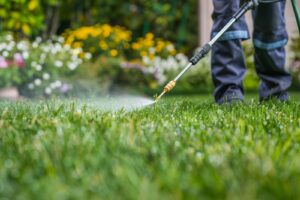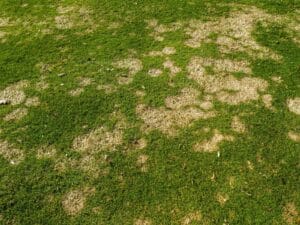If you pride yourself in buying organic food, using all-natural cleaning products, and prefer herbal remedies, then you may be considering organic lawn care. However, it can be difficult to separate true organic practices from pseudo-organic ones.
Due to the COVID-19 pandemic, you’re probably practicing social distancing. If you have free time on your hands, now is the perfect time to tend to your lawn. Learn more about organic lawn care to see if it’s right for your lawn.
Organic Lawn Care Basics
Organic lawn care consists of two parts, which are the substances used as a treatment for pesky weeds and the techniques used to treat your lawn. This type of lawn care doesn’t involve the use of synthetic substances or chemicals. Instead, it consists of the use of carbon-based substances extracted from animal and plant parts or residue.
Read our guide to learn more about organic lawn care, including common misconceptions.
How to Get the Most out of Organic Lawn Care
If you think organic lawn care is the way to go, you’re going to have to put in extra gardening work. Practice the following regimen:
Step 1: One of the reasons some homeowners immediately give up on organic lawn care is because their grass isn’t set up correctly; avoid burnout by paying attention to where your grass grows. Make sure it gets equal parts sunlight and shade and that it’s sprouting in an area with minimal foot traffic.
Step 2: Unfortunately, there’s no shortcut to weed pulling. The best way to remove weeds without turning to synthetic chemicals is to pull them out as soon as they grow. Alternatively, you can pluck them out after a rainfall because wet weeds are easier to extract.
Step 3: Mulch is your new best friend. Cover your plants’ bases with a three-inch layer of compost, which will also serve as fertilizer.
What Should I Avoid?
If you’ve researched organic lawn care, then you’ve probably encountered the following myths:
Myth #1: Hot water kills weeds
Truth: Although boiling water can kill weeds, it isn’t the most effective method to follow because they will grow back almost immediately.
Myth #2: Vinegar wipes out weeds
Truth: Acetic acid is the main ingredient found in vinegar, but it isn’t enough to kill weeds. For this to work, you need vinegar with a concentration so powerful, it becomes hazardous. Household vinegar contains 5% acetic acid, whereas horticultural vinegar contains 20%. Although horticultural vinegar is potent enough to handle weeds, it can also kill the other flora in your yard. Worst of all, it can burn your skin or eyes.
Myth #3: Baking soda is an effective herbicide
Truth: Baking soda can suck the water out of plants, drying them out until they decay. However, baking soda doesn’t discriminate between your healthy plants and unwanted weeds. Moreover, it would only damage the surface of your weeds, but won’t penetrate their roots.
Need a Helping Hand? Contact Summit Lawn & Pest Control
Although you can remove your lawn’s weeds on your own, we recommend you work with licensed pest control and lawn care service. The experts at Summit Lawn & Pest Control can take care of your lawn’s weed infestation with our double-sided approach. We’ll start by eradicating your lawn’s weeds, and then we’ll fortify your lawn’s root system so the weeds won’t grow back. Call us today for a free quote.







